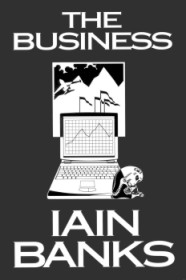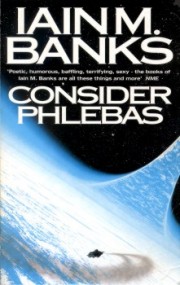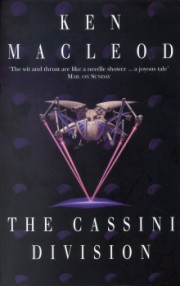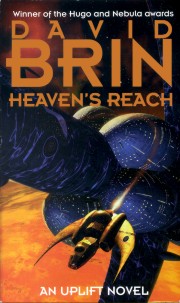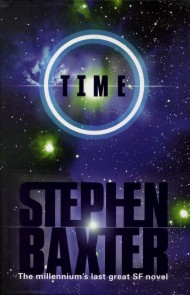Link
to: Ratings Guide | Isaac
Asimov | Iain Banks
| Ken Macleod |
David Brin | Stephen
Baxter | Peter F Hamilton
| Greg Egan
Book Reviews
[page 1]
Last
updated: A Second Chance at Eden
(Peter F Hamilton)
Welcome
to the Book Reviews page! As you can see, I've added a number of new reviews
lately. I'd like to say that all the authors featured here are outstanding -
I don't waste time talking about second-rate writers. That doesn't mean that
there are no other good writers; I only wish I had the time to read the novels
of Heinlein, Niven and other acclaimed writers, and until then, they are not
featured here.
You
may have noticed that I've recently added blurbs to all the novels reviewed.
I don't want to spend my time summarising the book, I'm here to review them.
And since someone else has invariably already done a good job of it anyhow,
I just copy the blurbs out.
I
could have just left out all the blurbs. But I know how irritating it is to
read a review of a book, and still have no clue of exactly what the book is
about, thus the blurbs.
Isaac
Asimov: The
Foundation Universe
Iain
Banks: Non-Culture
novels (continued
below)
| |
|
|
|
|
|
|
|
The
Business
|
  
|
Although
Banks is best known within the sci-fi community for his excellent
Culture books, outside the Culture universe he has written a number of
books that have received critical acclaim.
His latest
book, The Business, is reviewed here.
|
| |
|
| Against
a Dark Background |
    |
|
|
|
| |
|
| |
Iain
Banks: Culture
novels
Ken
Macleod
| |
|
|
|
|
|
|
|
The
Cassini Division
|
   
|
Ken
Macleod has only recently started writing SF, yet already he has been
praised by the likes of Kim Stanley Robinson, Peter F Hamilton and Iain
Banks as being one of today's most promising new SF writers.
Considering
that The Cassini Division is one of his first novels, Macleod seems
well on his way to establishing himself as a major figure in modern SF.
|
| |
David
Brin: Uplift
Universe
| |
|
|
|
|
|
|
|
Sundiver
|
   
|
A
multiple Hugo and Nebula award-winner
among others, David Brin ranks as one of the most acclaimed and
highly regarded science fiction writers in the world. Brin has also published
several essays and books on general science topics, including the often
cited Transparent Society.
However,
Brin is most likely to be known for his Uplift series, six books
whose stunning ideas on evolution, and beautiful prose have won him countless
fans. Undoubtedly the truly original nature of the books helped this no
end.
Rarely
has there been a series which was thought out so well to enrich the Uplift
universe, and bring the series to a brilliant conclusion.
|
| |
|
|
Startide
Rising
|
   
|
| |
|
|
The
Uplift War
|
   
|
| |
|
|
Brightness
Reef
|
  
|
| |
|
|
Infinity's
Shore
|
   
|
| |
|
|
Heaven's
Reach
|
   
|
| |
|
|
|
|
| |
|
|
Stephen
Baxter
| |
|
|
|
|
|
|
|
Time
|
 
|
Stephen
Baxter is a well known name among British
science fiction circles, if not across the world. His mind-blowing Xeelee
Sequence of short stories were first published in science fiction
magazines, and due to their popularity and exemplary quality, they have
graduated into a full blown series of books with novels adding depth to
the Xeelee universe.
Lately,
Baxter has concentrated his time on writing original novels such as Titan,
Moonseed and Time.
Baxter
is probably known most for his hard-science style of writing, where
he manages to introduce sophisticated physics to his readers while at
the same time adding believability, and readibility, to the story.
|
| |
|
|
Vacuum
Diagrams
|
   
|
| |
|
|
Titan
|
   
|
| |
|
|
Moonseed
|
   
|
| |
|
|
Ring
|
  
|
| |
|
|
Timelike
Infinity
|
  
|
| |
|
|
|
|
| |
|
|
Go
forward to Page 2 of the Book Reviews
![]()
![]()
![]()
![]()
![]()
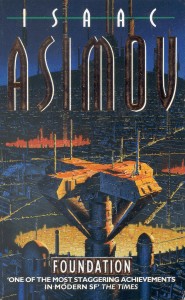
![]()
![]()
![]()
![]()
![]()
![]()
![]()
![]()
![]()
![]()
![]()
![]()
![]()
![]()
![]()
![]()
![]()
![]()
![]()
![]()
